War games and heightened tensions: China and Taiwan's relationship explained
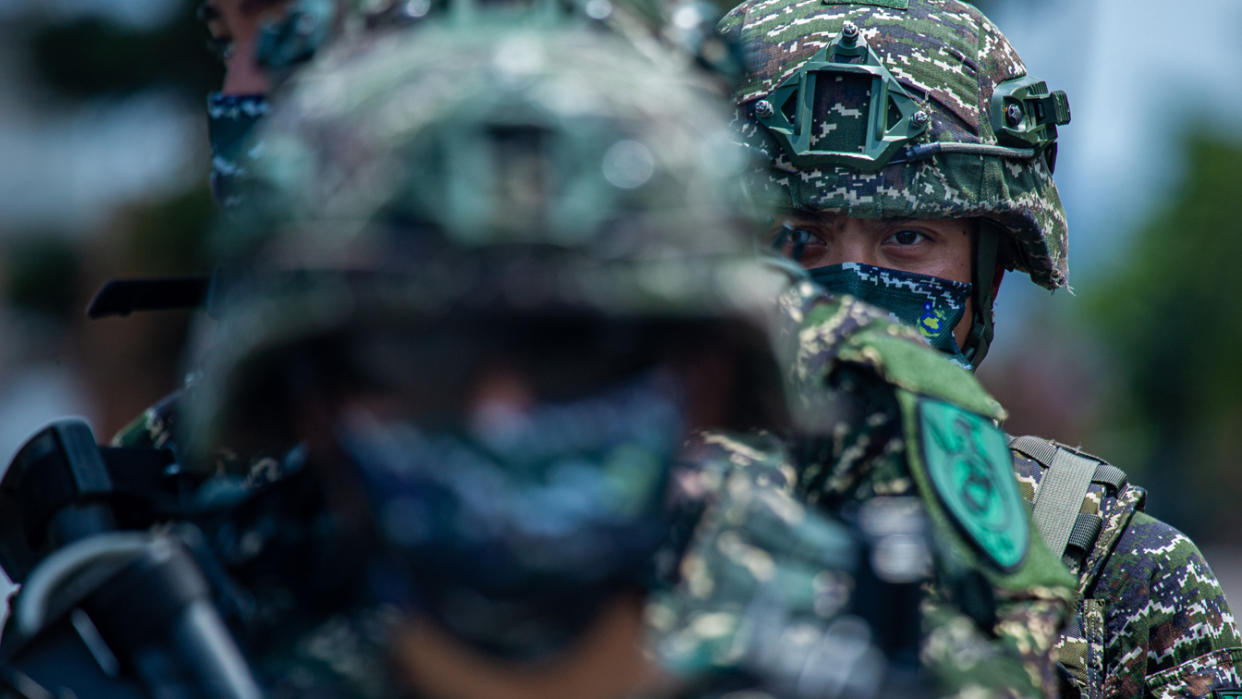
Chinese President Xi Jinping said on Tuesday that he wants to strengthen his country’s army for “actual combat” following three days of military drills that surrounded Taiwan.
China’s military, also known as the People’s Liberation Army, simulated a blockade of the island, demonstrating its dominance over the small self-governing island, which it claims sovereignty over. On Tuesday, nine warships were still spotted in the Taiwan Strait.
Though Beijing called off the war games on Monday, Taiwan’s Defense Ministry stated that Chinese warships and aircraft were still operating on Tuesday.
“The theater’s troops are ready to fight at all times and can fight at any time to resolutely smash any form of ‘Taiwan independence’ and foreign interference attempts,” China’s military said in a statement on Monday.
The military drills were conducted as a “stern warning” to Taiwan’s leadership after President Tsai Ing-wen met with House Speaker Kevin McCarthy in California in early April. The drills began just hours after Tsai arrived back in Taipei. During the visit, McCarthy said there was no intention to “escalate” tensions between the two countries. “There’s no need for retaliation,” he said. “There is no place that China is going to tell me where I can go or who I can speak to — whether you be foe or whether you be friend.”
Why are relations so frayed between China and Taiwan? Yahoo News spoke with several experts who broke down the complex relationship between the two countries.
Where is Taiwan?

Taiwan is an island located in the Pacific Ocean between the East China Sea and the South China Sea. It lies just 100 miles from mainland China and has a population of around 23 million.
What is Taiwan’s history with China?
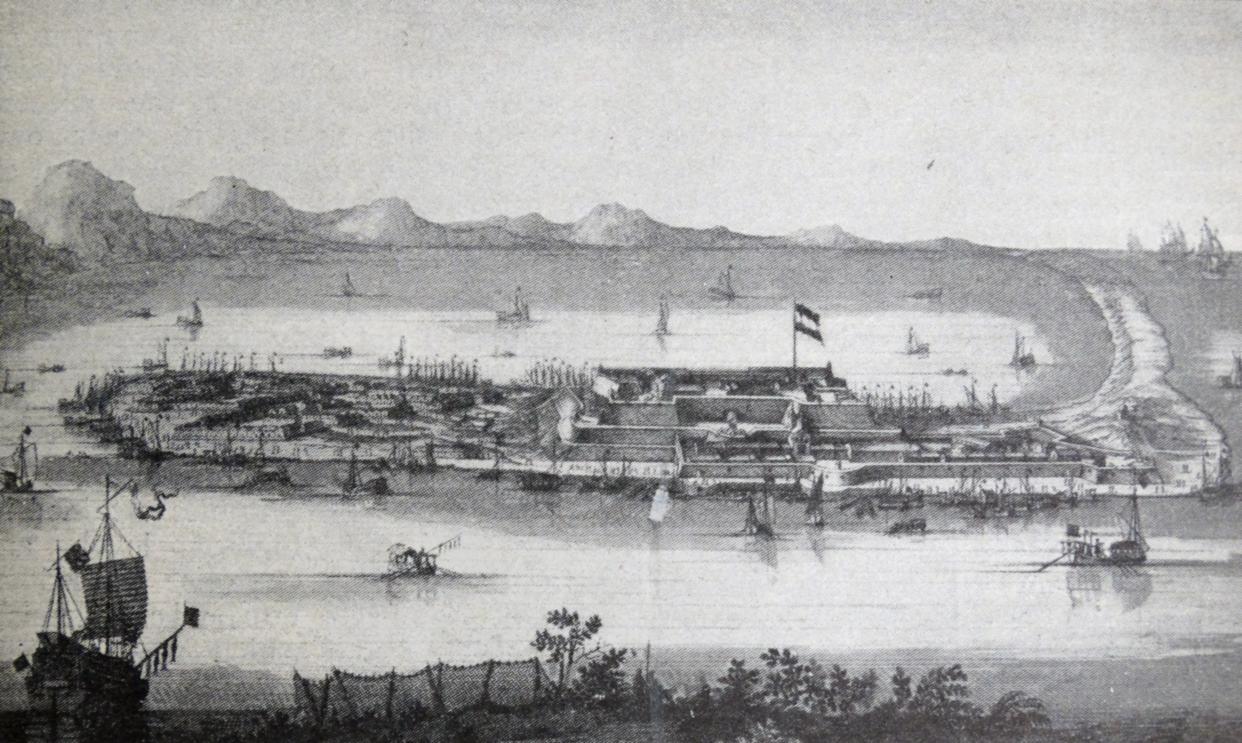
Before the Dutch colonized Taiwan in the 17th century, it had been a small insular nation ruled by a small group of tribal leaders. Over the course of 200 years, Taiwan would become occupied by three nations before it was conceded as a colony to Japan in 1895, after China lost the first Sino-Japanese War. However, China’s history with Taiwan predates the Age of Exploration. Migrants from China had been settling there for hundreds of years, and by the Japanese occupation in 1895, the Chinese population had grown to 3 million.
Taiwan, as well as an archipelago of 90 islands located in the Taiwan Strait, would remain occupied by Japan until the end of World War II. From 1945, the Allied powers had control over the island after Japan lost the war. Taiwan was once again put under Chinese control until 1949, when the two split following a civil war. Soldiers from the Nationalist Party of China, known as the Kuomintang, completely withdrew from China, which was under the control of Mao Zedong, leader of the Chinese Communist Party. Close to 1.5 million people from mainland China fled to Taiwan. The Kuomintang and its leader, Chiang Kai-shek, would go on to rule the island for several decades.
In the post-Mao era of the 1980s, China’s leader Deng Xiaoping wanted to build up a maritime defense policy and created the concept of the “First Island Chain.” Steve Tsang, the director of the SOAS China Institute in London, told Yahoo News last August that Taiwan was in the middle of this defense chain. “They intended to secure that defensive line, but they couldn't actually do anything until the last few years.”
How does China view Taiwan?
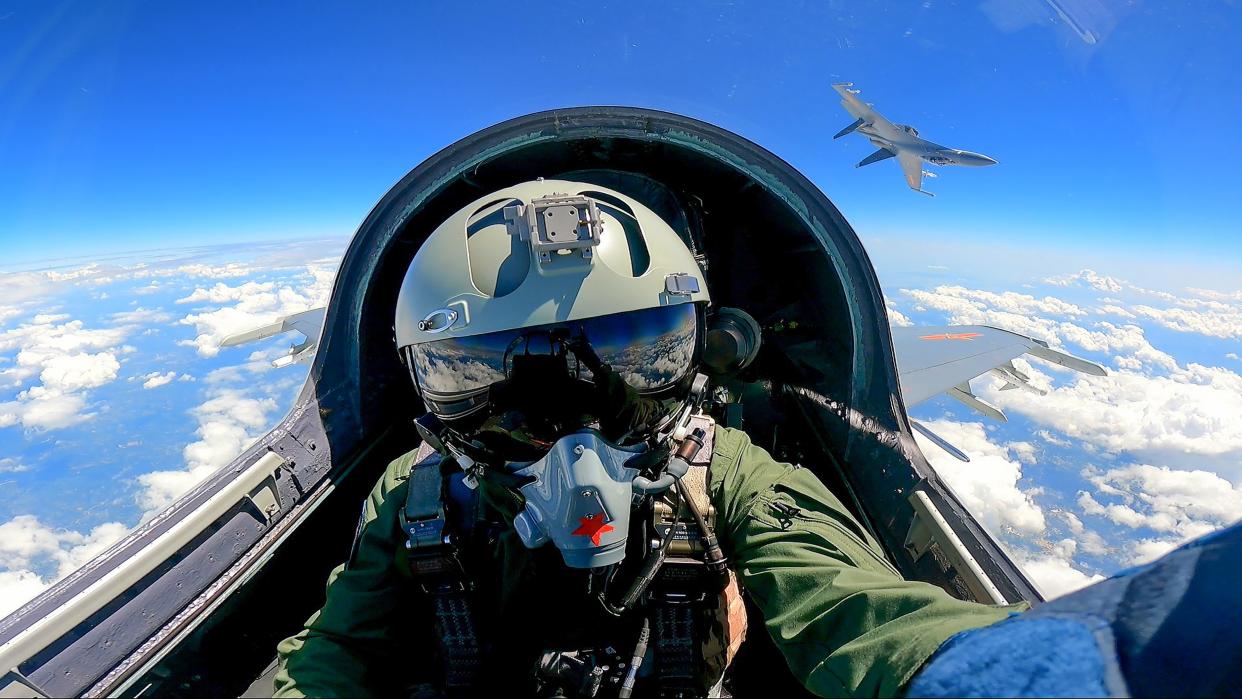
Taiwan and mainland China, which is formally known as the People’s Republic of China, have long had separate governments. China views Taiwan as a renegade province and has repeatedly threatened to invade it since Chiang and his forces fled there in 1949. However, the situation in the Taiwan Strait has become especially fraught over the last decade as China’s position in the world has become more powerful under Xi’s aggressive leadership.
In 2017, Xi announced that the “reunification” of Taiwan and China would be “an inevitable requirement for realizing the great rejuvenation of the Chinese nation.” Two years later, he reiterated that Taiwan’s unification with the mainland was “inevitable.”
In 2021, China’s vice foreign minister said the so-called national reunification would “not be stopped by anyone or any force” — a statement that appeared to be a warning to the U.S., which has a good relationship with Taiwan, despite not having diplomatic relations.
Last August, China launched ballistic missiles into waters northeast and southwest of Taiwan’s coasts after then-House Speaker Nancy Pelosi visited Taiwan. China’s foreign minister called the trip an infringement on “China’s sovereignty.” Pelosi was the highest-ranking elected U.S. official to visit Taiwan in 25 years.
What relationship does China have with Taiwan now?
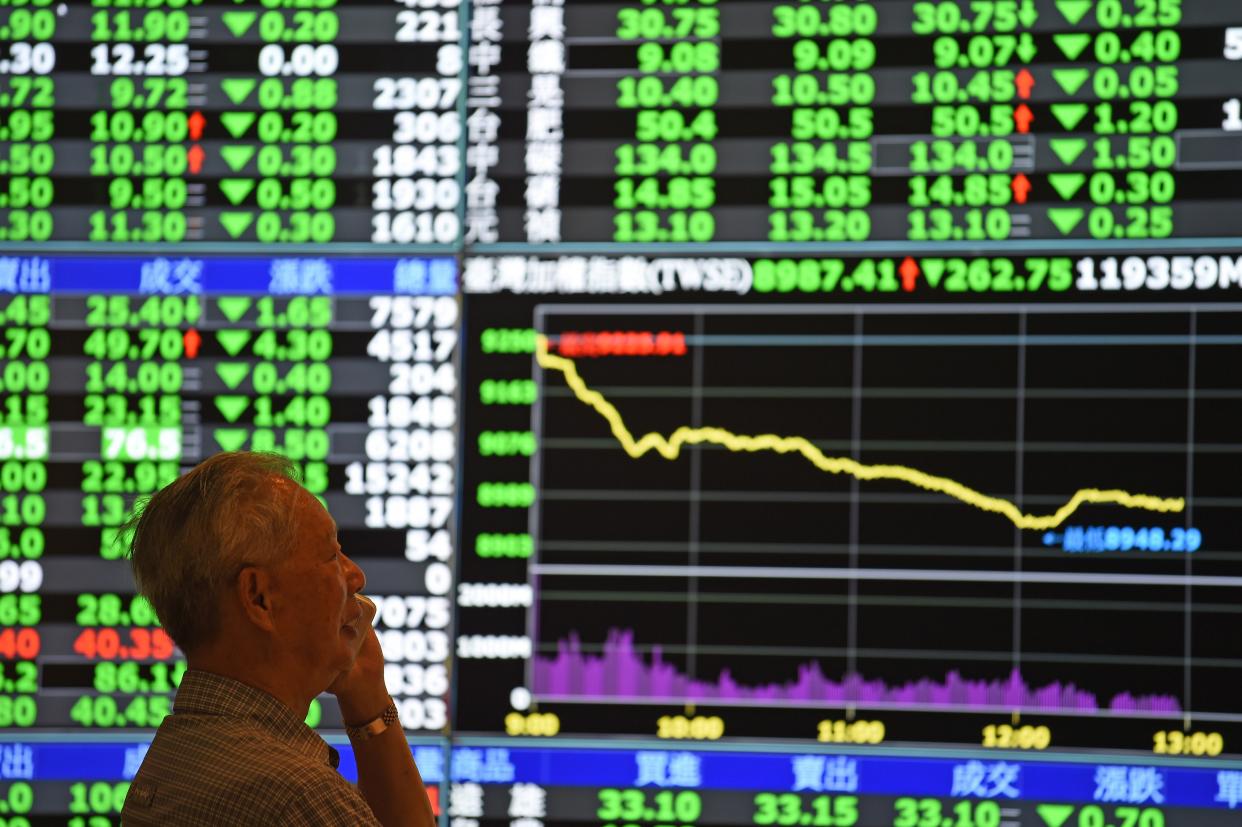
“China has a very strong economic relationship with Taiwan,” Tsang told Yahoo News in August. “China is probably Taiwan’s biggest economic trading partner. Taiwan is a major investor in China, particularly in terms of a lot of consumer manual productions, consumer goods, manufacturing and high-tech manufacturing in China.”
How does Taiwan view itself?
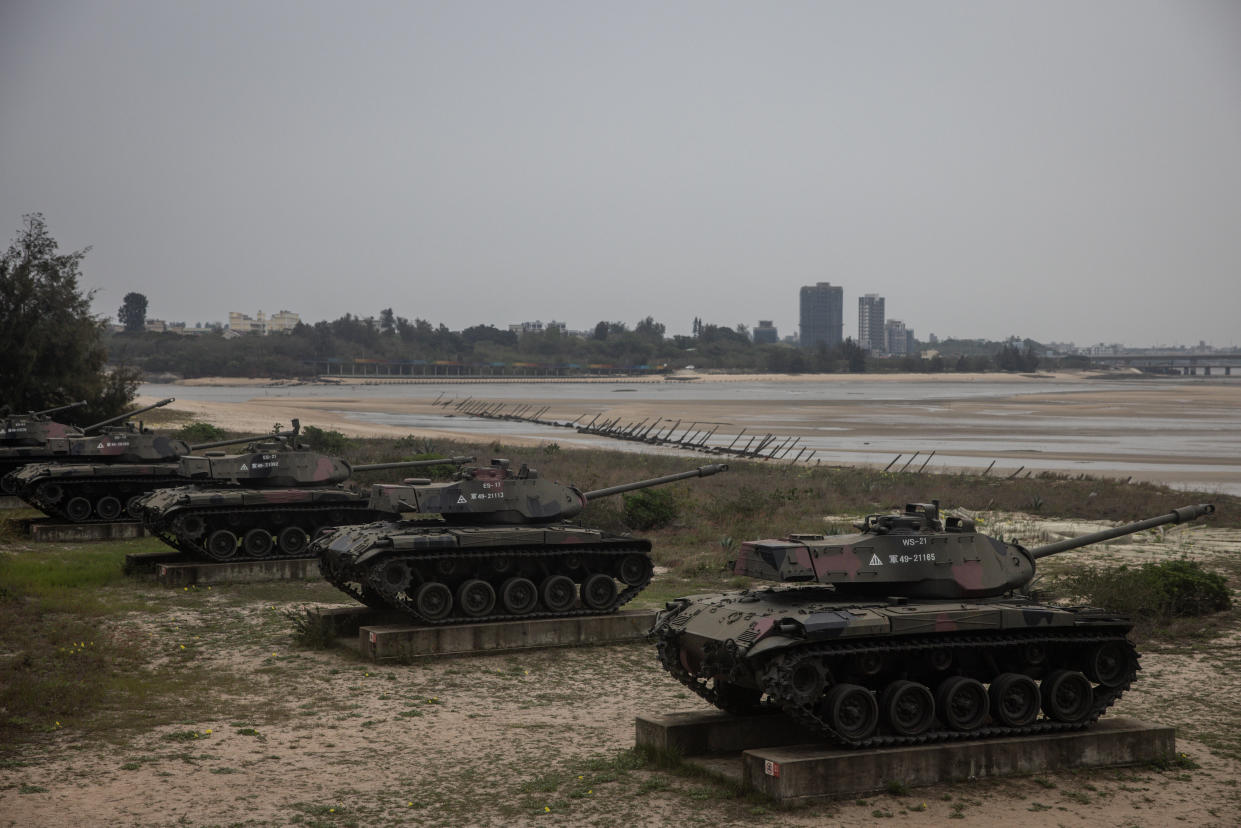
Taiwan is effectively a sovereign state. It has its own currency as well as its own political and judicial systems. A central divide between its two main political parties involves whether Taiwan should declare independence or seek closer ties with mainland China.
Since 2016, Tsai has repeatedly said the island is self-governing and should not submit to Chinese demands. Her reelection in 2020 alarmed Beijing, which had hoped the Taiwanese would choose a government more malleable to reunification.
Why did China conduct the war games?

“I think what Xi is doing is testing the U.S. politically,” Matthew Schmidt, the director of international affairs and an associate professor of national security at the University of New Haven, in Connecticut, told Yahoo News on Wednesday. “Not so much that he is testing the administration’s resolve but that he is doing things and probing and seeing what political pressures would emerge were he to move closer and closer to invading Taiwan.”
He added: “Xi is playing a war game, and war games are about political conditions created by kinetic forces.”
What has Biden said about China-Taiwan relations?
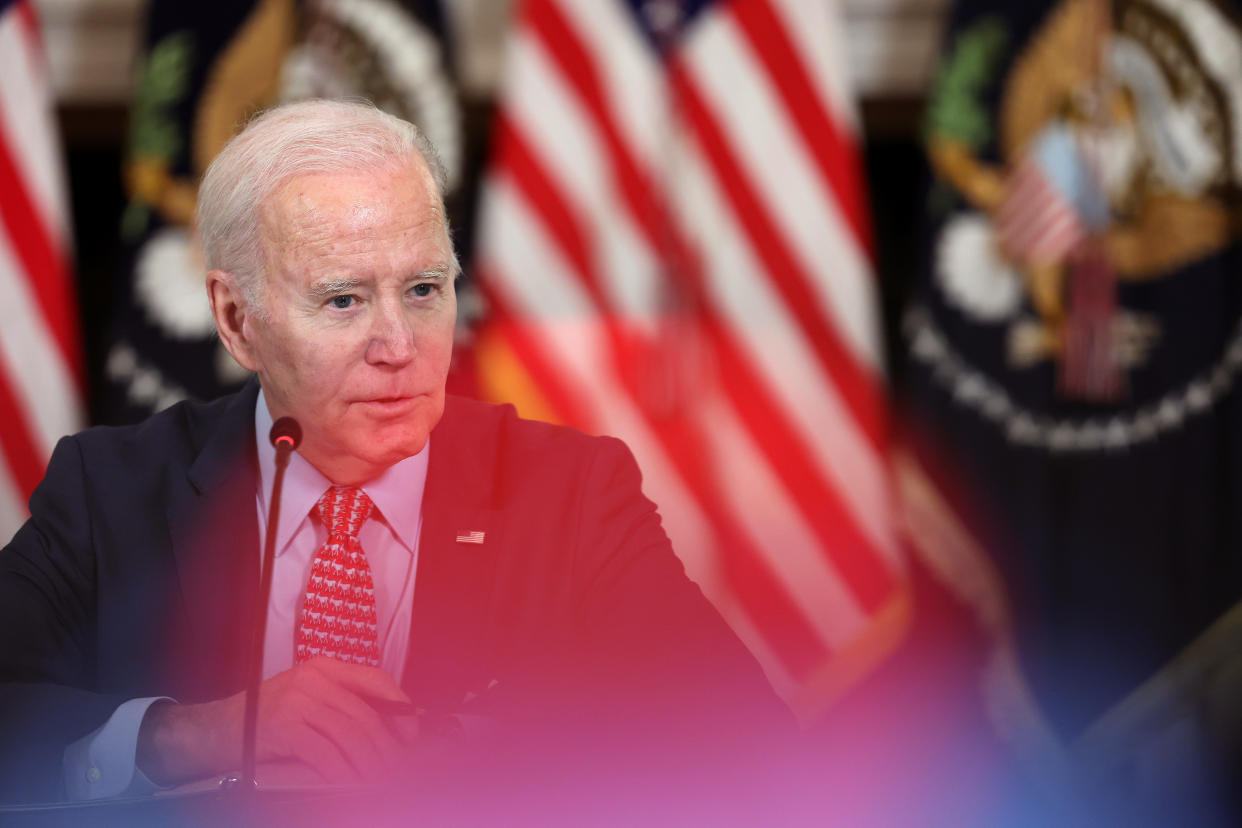
President Biden has stated many times that the U.S. would militarily intervene if China invaded Taiwan. During a visit to Japan last May, he accused China of “flirting with danger” after military drills conducted last year.
More recently, Biden reiterated that the U.S. would intervene “if there was an unprecedented attack,” although official U.S. policy says there would be no military intervention if such an event occurred. The White House later clarified that the official policy had not changed.
What countries recognize Taiwan?
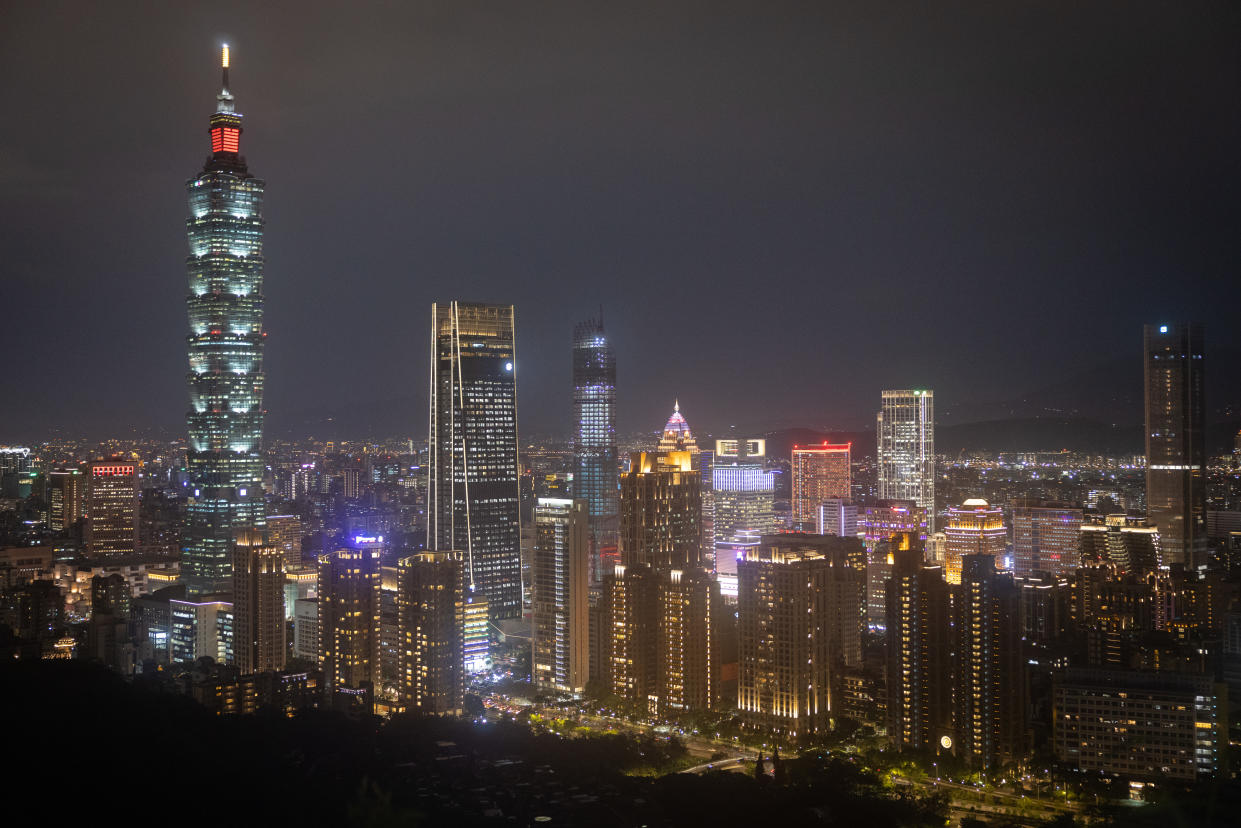
Only 12 United Nations member states recognize Taiwan as a sovereign nation. However, dozens of other countries have unofficial diplomatic ties with Taiwan.
Since 2016, Taiwan has lost nine allies — the most recent being last month, when Honduras cut diplomatic relations in order to develop ties with China. In doing so, Honduras has embraced the "One China policy," which recognizes Taiwan as a province of the People’s Republic of China. "We ask Honduras to carefully consider and do not fall into China's trap and make the wrong decision to damage the long-term friendship between Taiwan and Honduras," Taiwan’s Foreign Ministry said in a statement.
China has been slowly eroding Taiwan’s diplomatic recognition, Tsang told Yahoo News, and “with the substantial increase in China's economic and military and other power in the last 40 years, it has now become completely overwhelming.”
He added, “China can dictate terms to most countries in terms of their relationship with Taiwan and will not allow any government to have a formal relationship with Taiwan — with exceptions of major Western industrialized countries.”
Both large companies and celebrities have come under fire from Beijing for stating that Taiwan is a country. Actor John Cena, for example, became embroiled in controversy with Beijing during a press tour in 2021 when he said Taiwan would be the first “country” to watch “Fast and Furious 9.” Later, Cena filmed an apology in Chinese. “I am very sorry for my mistake. I am so sorry. I apologize,” he said.

